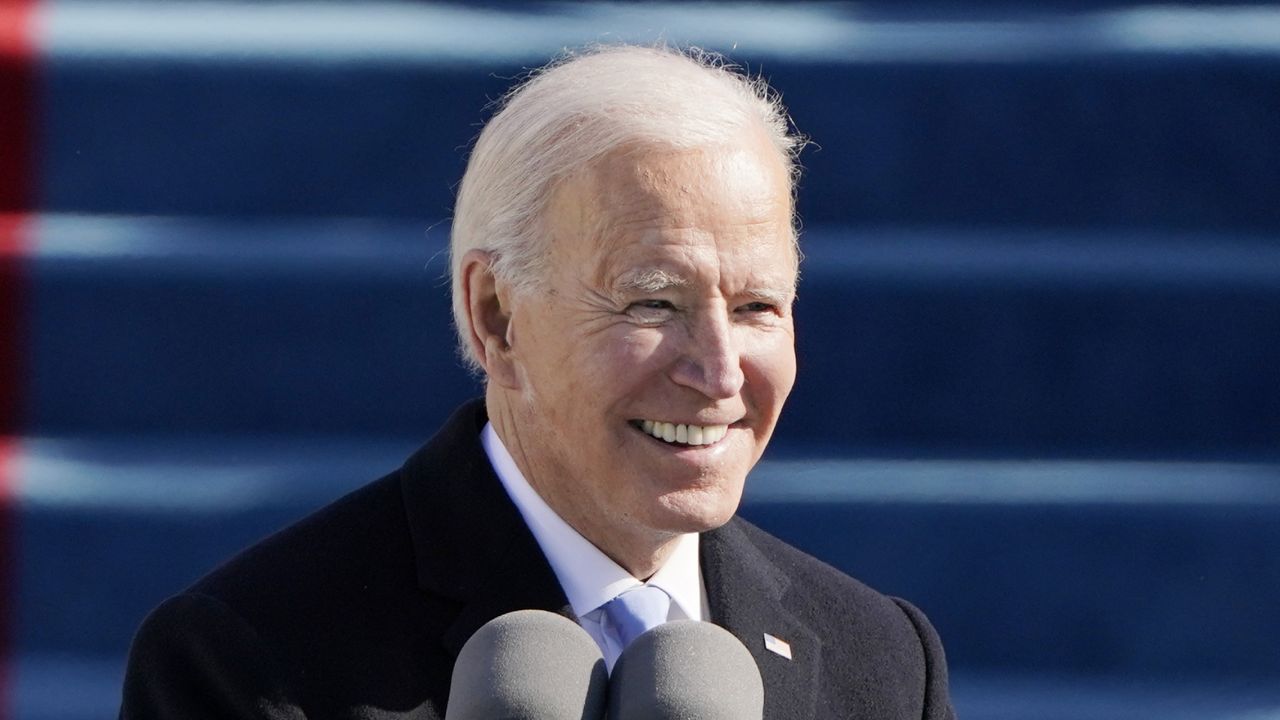“On this January day, my whole soul is in this: bringing America together, uniting our people, uniting our nation, and I ask every American to join me in this cause,” President Joe Biden said Wednesday in his first address as Commander-in-Chief.
It was a moment the 78-year-old has been working towards for nearly four decades. Biden launched his first campaign for president in 1987, and ran again in 2008 before accepting the role of vice president under former President Barack Obama.
Biden centered his 2020 campaign for president around unity, promising to heal a bitterly divided nation amid an ongoing coronavirus pandemic.
As he did frequently during the campaign, Biden pledged that he will be a “president for all Americans” and will “fight as hard for those who did not support me as for those who did.”
"We must end this uncivil war that pits red against blue," he added.
"The American story depends not on any one of us, not on some of us, but on all of us," Biden continued. "On we the people who seek a more perfect union."
Biden addressed all Americans who did not vote for him, asking for them to "take a measure of me and my heart" in the beginning days of his administration. The nation, he said, is facing a historic series of crises, including the ongoing coronavirus pandemic and struggling economy it brought about -- and the only way to move forward is together.
“This is our historic moment of crisis and challenge and unity is the path forward,” Biden said. “And we must meet this moment as the United States of America.”
"We can join forces, stop the shouting, and lower the temperature,” Biden later continued. “For without unity, there is no peace, only bitterness and fury. No progress, only exhausting outrage. No nation, only a state of chaos."
Biden did not once mention his predecessor, Donald Trump, by name, and the former president did not attend Wednesday's ceremony. But Biden did address the violent insurrection on Capitol Hill on Jan. 6, when supporters of the former president stormed the U.S. Capitol in protest of the certification of his victory.
Notably, Biden's speech is believed to be the first, and only, inaugural address to mention white supremacy by name when he said that the country must defeat, "a rise of political extremism, white supremacy and domestic terrorism."
Biden said the transfer of power between administrations was proof that “democracy has prevailed,” promising to renew global alliances that had been weakened amid political turmoil in the U.S.
“Here we stand, just days after a riotous mob thought they could use violence to silence the will of the people, to stop the work of our democracy, to drive us from this sacred ground,” Biden said. “It did not happen, it will never happen, not today, not tomorrow, not ever.”
Biden then turned his attention to the ongoing coronavirus pandemic, warning that a “winter of peril” still lies ahead. In his first official act as president, Biden asked the nation to join him in a moment of silence to honor the over 400,000 people who died from the virus across the country.
And while there is much work left to be done, Biden said he is certain the country can meet and overcome its challenges. He will take charge in a deeply divided nation, inheriting a confluence of crises arguably greater than any faced by his predecessors.
“Together we shall write an American story of hope, not fear, of unity, not division,” Biden concluded, adding: “May this be the story that guides us, the story that inspires us, and the story that tells ages yet to come that we answered the call of history. We met the moment [...] Democracy and hope, truth and justice did not die on our watch, but thrived."
The Associated Press contributed to this report.



